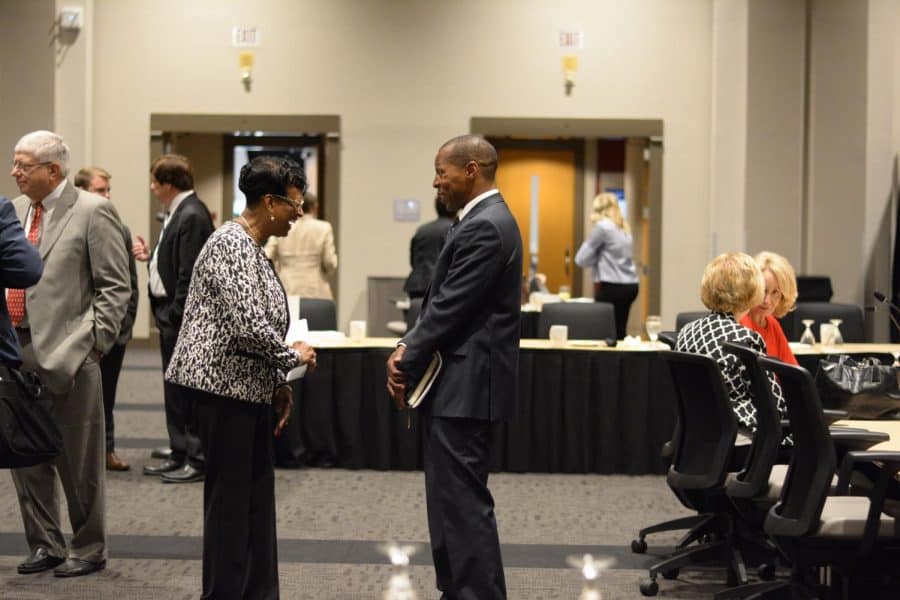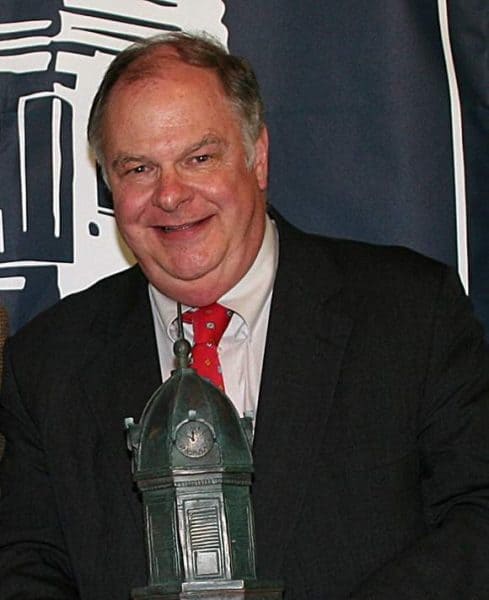Board of Trustees: More emphasis on research, adding DEI initiatives
November 11, 2019
The Board of Trustees held committee meetings at the Bryant Conference Center last Thursday and Friday before a full board meeting on Nov. 8.
The board meeting began with Finis St. John, chancellor of the University of Alabama System, recognizing the retirement of Charles Nash, the vice chancellor of academic affairs. Nash’s family was in attendance as the Board recognized his contributions to the System during his tenure.
St. John introduced Russell Mumper, UA vice president for research and economic development, before jokingly questioning his judgment for wearing purple the day before Alabama’s unsuccessful game against No. 1-ranked LSU.
“We have a highly coordinated effort that emphasizes values and goals,” Mumper said. “We will constantly measure our ability to achieve those goals.”
Mumper provided a brief overview of the University’s five-year strategic plan for economic development, highlighting a commitment to helping the UA community position themselves to be economic drivers and increasing productivity and innovation in research. His stated goal of doubling the current 100 million dollars of research funding by the end of the five years will be achieved through a 15% annual increase in funds.
As of June 1, Mumper’s office has developed two coordinated strategic plans linked to the University’s Advancing the Flagship plan that align research and economic development efforts. The Economic Development Council tracks priorities and serves as a single point of contact for all inquiries relating to economic development initiatives. It estimated an economic impact of more than 13,000 jobs and nearly $3 billion from 2017 to 2018.
UA President Stuart Bell delivered a presentation that highlighted updated statistics about the University and its faculty and students. Enrollment has passed 38,000 for the third consecutive year with a 10% increase of in-state students – a metric that defies recent trends of a growing out-of-state population.
He acknowledged the recent hires of Matthew McLendon as associate vice president and executive director of enrollment management and Joseph Messina as the new dean of the College of Arts and Sciences. G. Christine Taylor, associate provost for diversity, equity and inclusion, has been asked to lead an advisory committee to further promote these values at the University.
Bell’s update of campus facilities included the renaming of the Biology Building as the Math and Science Education Building, the recent dedication of John H. England Jr. Hall, and the upcoming decision by the Board on a construction contract for Tutwiler Hall.
Rona Donahoe, president of Faculty Senate, said the community and legislative affairs committee plans to collaborate with Taylor to develop a commission on race, civil rights and slavery. The Campus Culture Taskforce was created in response to the Sept. 4 resignation of former dean of students Jamie Riley. It is composed of 10 faculty members, has held weekly meetings since Sept. 22 and has worked with the presidential advisory committee to advance diversity, equity and inclusion efforts.
SGA President Harrison Adams highlighted student accomplishments and provided updates on campus parking and transportation, such as 30-minute parking at the Ferguson lot, Lyft Rideshare discounts for students, Gotcha bikes and a new option to pay off tickets with community service.
He also noted diversity, equity and inclusion efforts, such as the Miss Unique UA Pageant and a DEI certification program, which launched in mid-September, right after the SGA Senate was criticized by several students for its lack of diversity. Adams reported that about 1,100 students enrolled in its first two sessions.
The board voted on agenda items approving the finance committee’s state appropriation request for the 2021 fiscal year and the physical properties committee’s construction contracts for Tutwiler.
Trustee Vanessa Leonard commented on Nash’s retirement and thanked him for his service to the system and the state. Her statement was followed by one from John H. England Jr., who said he believed the resolution alone could not do justice for Nash’s service.
“We have had a treasure,” England said. “This is a good, long resolution, but it doesn’t say all he means to so many people.”
The board rose to give Nash a standing ovation as he received a copy of the resolution surrounded by his family.
“I will stop work, but I will never stop serving,” Nash said at the conclusion of the meeting.











